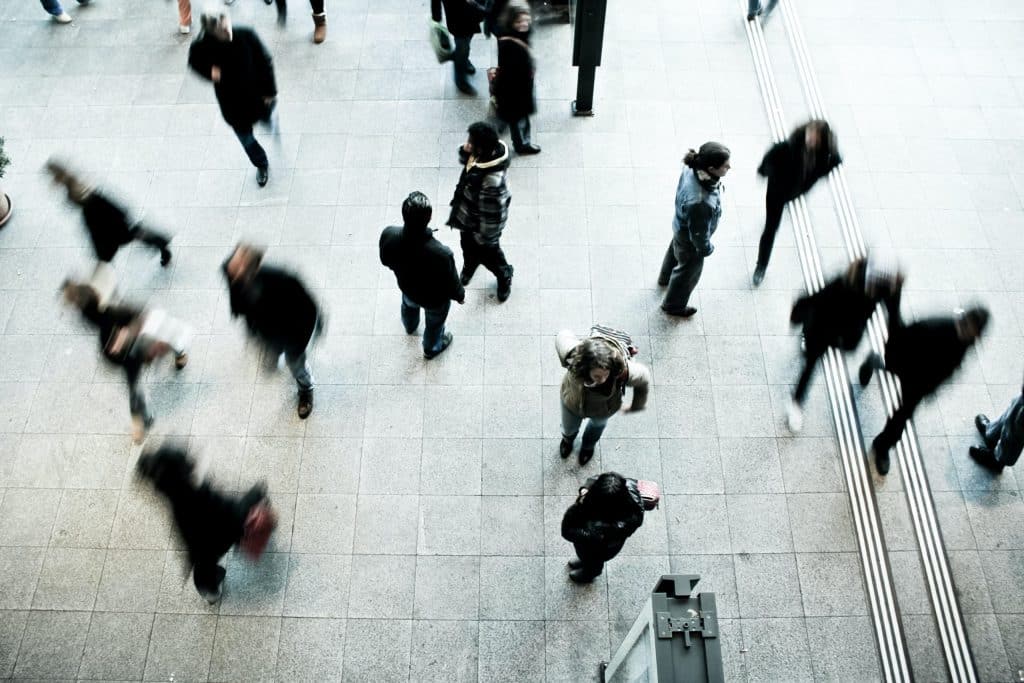Why Slowing Down Unlocks Original Thinking
Samantha Lee July 25, 2025
In a world that thrives on speed, the idea of slowing down might seem counterintuitive. We live in an age where instant gratification and the constant hustle have become the norm. But could it be that the most innovative thinkers and successful individuals aren’t the ones working at lightning speed, but those who intentionally slow down and give their minds the space to breathe? The latest research suggests that slowing down might actually be the key to unlocking original, creative thinking.
In this article, we will explore why slowing down is essential for fostering creativity and original thinking. We’ll discuss the science behind this, look at how it improves mental health, and offer practical ways to incorporate a slower pace into your daily life. If you’re ready to rethink productivity and creativity, keep reading to find out how slowing down could be the game-changer you’ve been waiting for.

The Science Behind Slowing Down for Creativity
It’s common to believe that success in our fast-paced world is determined by how much we can accomplish in a short amount of time. After all, speed is often associated with productivity. However, recent studies are revealing that creativity and deep thought require the opposite: time to reflect, process, and, most importantly, pause.
1. Rest and Creativity: A Necessary Pair
Research conducted by the University of California in 2019 found that when we take breaks, especially from mentally demanding tasks, our brains can process information in the background. This period of rest allows the mind to make connections and form insights that wouldn’t be possible when constantly focusing on a single task. The study emphasized that creativity thrives when the mind is given the space to relax, free from the constant pressure of deadlines and multitasking.
A similar study conducted by the University of Toronto (2018) found that taking time to “unplug” from continuous work enhances the brain’s ability to generate new ideas. The research concluded that the more rest our brains receive, the more they’re able to think in new, creative ways—without being constrained by the usual speed or routine.
2. Mindfulness: Enhancing Brain Function and Reducing Stress
Mindfulness is often touted as a powerful tool for managing stress, but did you know it also improves creativity? Dr. Sara Lazar, a neuroscientist at Harvard University, found that mindfulness and meditation can increase the volume of gray matter in the brain, particularly in regions responsible for creativity, memory, and emotional regulation. By slowing down and focusing on the present moment, we can enhance cognitive flexibility, which allows us to think more creatively.
When we’re always rushing, we put our minds into “survival mode,” which can stifle innovative thinking. Mindfulness practices, on the other hand, reduce the stress response and activate the brain’s “default mode network,” which is linked to creativity, daydreaming, and making connections across different ideas. It’s this shift from a state of urgency to a state of calm that allows for original thoughts and fresh insights to emerge.
3. The Importance of Mental Space
In our hyper-connected world, we often feel the pressure to stay busy and productive at all times. But the constant noise of digital notifications and meetings can severely hinder our ability to think deeply. It’s like trying to solve a puzzle while someone is constantly talking in your ear. Slowing down, both mentally and physically, allows for a greater sense of clarity and mental space.
A 2018 study from the American Psychological Association (APA) found that individuals who allowed themselves regular breaks or “mental rest” experienced a significant boost in creative problem-solving abilities. The study concluded that giving your mind time to wander, without any specific task or objective in mind, helps to increase mental clarity and allows new ideas to surface.
The Benefits of Slowing Down for Mental Health
Beyond creativity, slowing down has profound benefits for mental well-being. Today, more people are experiencing burnout, anxiety, and depression as a result of working too much and too fast. Ironically, the pursuit of success through speed may be working against us in terms of both our productivity and happiness.
1. Reduction in Stress
One of the primary benefits of slowing down is stress reduction. Constantly pushing yourself to work faster and juggle multiple tasks is a recipe for burnout. This “always-on” mentality leads to elevated levels of cortisol, the stress hormone, which can have long-term negative effects on both mental and physical health.
Taking regular breaks, incorporating mindfulness, and engaging in activities that promote relaxation—like reading, taking a walk, or practicing yoga—can significantly lower stress levels. A study published by the National Institutes of Health (NIH) found that mindfulness-based practices led to a substantial reduction in cortisol levels and helped participants manage stress more effectively. The study also revealed that mindfulness participants showed improvements in attention and emotional regulation, further underlining the connection between slowing down and mental health.
2. Improved Focus and Mental Clarity
When we’re constantly on the go, our attention is fragmented, and we struggle to focus on one task for an extended period. Slowing down, however, improves focus and mental clarity. This is especially important when working on tasks that require deep thought or innovation. Instead of rushing through tasks and checking off boxes, a slower pace allows for sustained attention and higher-quality work.
In fact, research from the University of California (2018) indicates that individuals who take regular breaks during mentally demanding tasks report better focus, higher cognitive performance, and enhanced creativity. This is because taking time to pause gives the brain a chance to consolidate information and refuel for the next phase of work.
3. Enhancing Emotional Intelligence
When we slow down, we also give ourselves more time to reflect on our emotions and thoughts. This mindfulness practice enhances emotional intelligence, which is crucial for creative problem-solving and working effectively with others. People with high emotional intelligence are more capable of managing stress, handling criticism, and thinking outside the box when faced with challenges.
Practical Ways to Incorporate Slowing Down into Your Life
You may be wondering how to slow down in a world that demands constant productivity. Here are some practical tips to help you incorporate a slower, more intentional pace into your daily routine:
- Take Regular Breaks
Schedule breaks every hour, even if it’s just for five minutes. Step away from your work, take a walk, or stretch. These short moments of pause will help you recharge and allow creative ideas to flow. - Practice Mindfulness or Meditation
Dedicate a few minutes each day to mindfulness or meditation. This practice will help reduce stress and increase your ability to think creatively. Even a few minutes can make a big difference. - Limit Multitasking
Multitasking can reduce your ability to think deeply and creatively. Focus on one task at a time to improve your attention and mental clarity. - Unplug from Technology
Disconnect from your devices for short periods each day. Use this time to reflect, read, or enjoy the present moment without distractions. This can help reset your mind and improve mental focus. - Embrace the Power of “Doing Nothing”
Allow yourself time to simply be. Don’t always fill every moment with activity. Letting your mind wander can lead to the most original ideas and innovative solutions.
Conclusion: Slowing Down for the Win
In conclusion, the pace of life may be speeding up, but the best ideas often come from moments of pause. Slowing down is more than just a trend; it’s a crucial part of fostering creativity, improving mental health, and enhancing problem-solving abilities. By making time for breaks, mindfulness, and mental rest, we can cultivate a deeper connection to our thoughts and ideas, allowing us to think in original and innovative ways.
Next time you feel the pressure to rush, remember that taking a step back could be the very thing you need to unlock your next great idea.
References
- University of California (2019). “The Role of Breaks in Creativity.” Available at: https://news.stanford.edu (Accessed: 25 July 2025).
- Dr. Sara Lazar, Harvard University (2019). “Mindfulness and Brain Health: What the Research Shows.” Available at: https://www.health.harvard.edu (Accessed: 25 July 2025).
- American Psychological Association (2018). “The Impact of Multitasking on Mental Performance.” Available at: https://www.apa.org (Accessed: 25 July 2025).







